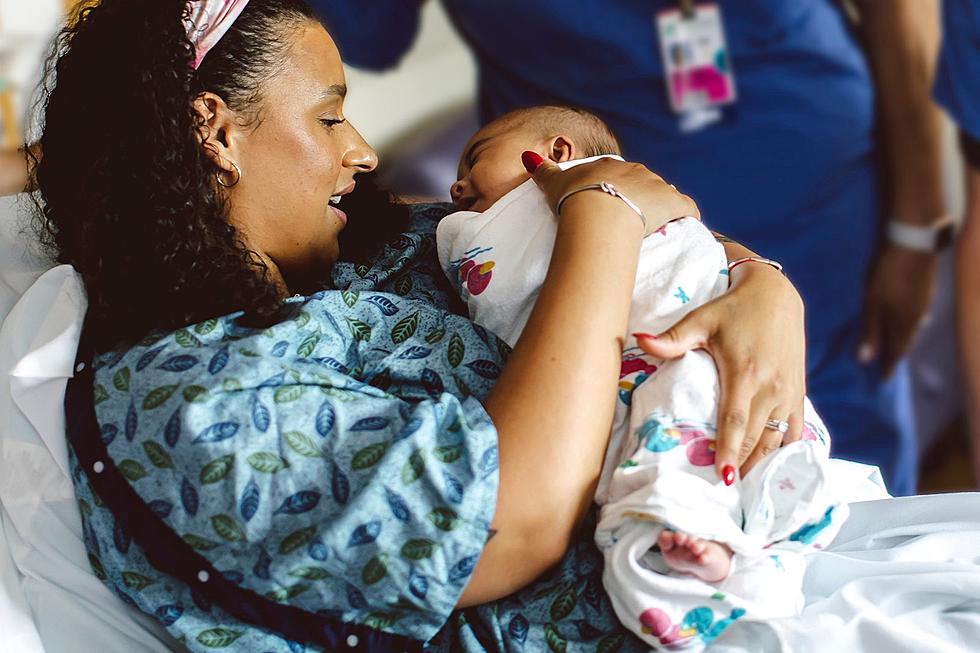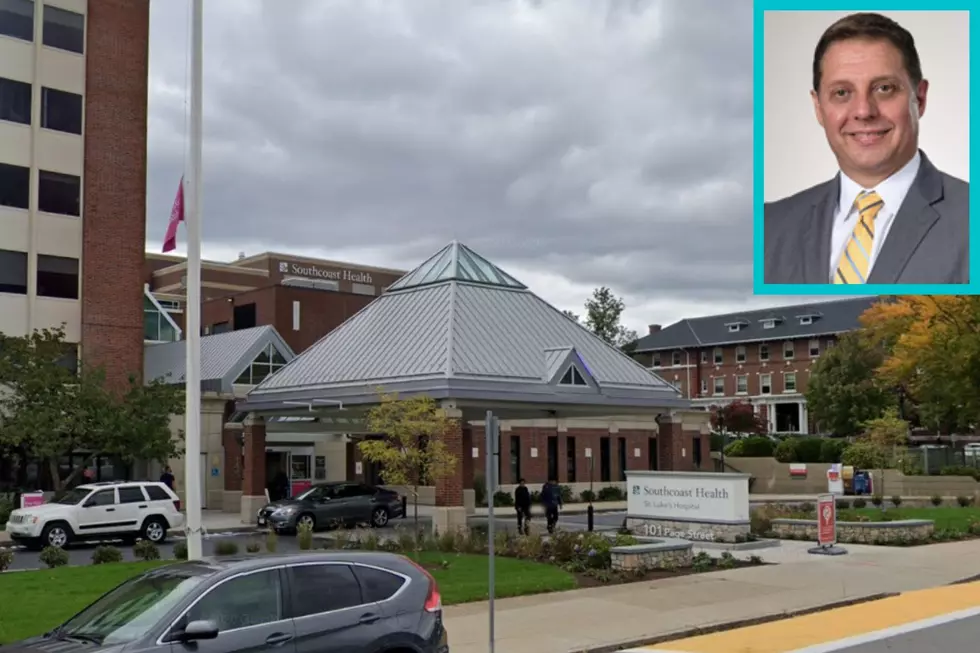
Southcoast Health Chief Doc: Kidney Cancer Can ‘Sneak Under the Radar’
March is Kidney Cancer Awareness Month, and this one hits close to home.
Dr. Dennis LaRock is Vice President and Chief Physician Officer for Southcoast Health, and he’s also a urologist and one of the top kidney surgeons in New England.
Full disclosure: he’s also the surgeon who removed this writer’s kidney after my own bout with kidney cancer.

“It’s one of those (cancers) that does fly under the radar, because it almost always is found incidentally,” Dr. LaRock said.
“There’s not any strict screening per se for kidney cancer as there is for prostate cancer or colon cancer, or even nowadays lung cancer, but kidney cancers are almost exclusively picked up incidentally because of other things that have happened to the person – for instance kidney stones, you get imagining in that situation and it gets picked up," he said.
That’s what happened in my case; a bad kidney stone back in September 2023 that needed to be surgically removed led to the discovery of a mass on my left kidney. I had no idea it was there and never had any symptoms.
“What’s different today as versus years ago…the imaging was not done quite as frequently, so the tumors were picked up when they were much, much larger and people actually felt them,” Dr. LaRock said. “What’s different today because there are such things as ultrasounds and CAT scans and MRI, they’re picked up at much earlier stages. So it’s a benefit, but it is a problem and it does kind of sneak under the radar.”
What Are the Types of Kidney Cancer?
Dr. LaRock noted that “kidney cancer” is a broad term that covers different possibilities, and even a solid lesion on the body or tissue of the kidney might not be a renal cell carcinoma; it could instead be one of two types of benign tumors.
“The vast majority of these solid tumors would be renal cell carcinoma, though, so we take them all very seriously,” he said.
The other types would be in the lining of the kidney, which Dr. LaRock said are picked up a little more regularly due to blood in the urine.
What Are the Symptoms of Kidney Cancer?
“Again, it’s strange because for smaller renal tumors, or kidney cancers, there’s nothing specific one would feel,” Dr. LaRock said.
He said blood in the urine, pain, feeling a mass, or unexplained weight loss could be other symptoms.
What Are the Causes of Kidney Cancer?
Dr. LaRock said “smoking is No. 1 on the list.”
“Some of the byproducts of smoking get excreted into urine and over time, they’re carcinogenic,” he said. “There can be ties to smoking or industrial exposure to heavy metals, but that’s more in the past because the workplace is much safer now than it was.”
Dr. LaRock said renal cell carcinoma is “generally genetic.”
“Some of it can be familial, and some are just sporadic,” he said. “The vast majority of those are the sporadic type.”
How Is Kidney Cancer Treated?
Kidney cancer is treated not with chemotherapy or radiation, but rather removal of the tumor or the entire kidney.
“Surgical removal is really the backbone of treatment,” Dr. LaRock said. “That being said, there are adjuvant therapies, medical therapies that can be given if needed.”
The key is how early the cancer is detected.
“If the lesion is small enough, you try to remove just the tumor and leave the rest of the kidney,” Dr. LaRock said. “But there is a cutoff in size. If it gets to be about four centimeters, it’s a transition in staging from 1a to 1b, and that partial removal becomes much less advisable.”
The partial removals can be done through robotic surgery, a program Dr. LaRock started at Southcoast Health in 2008.
“Once it gets beyond a certain size, even robotic approaches are not ideal, but it’s a nice way to get in and look and see what you’re dealing with, and it becomes somewhat of a game-time decision,” he said.
That’s what happened in my case. Originally, the mass was small enough that the plan was for partial removal, but once Dr. LaRock and the team got a look at it, the decision was made to remove my entire kidney.
What Are the Follow-Ups to Kidney Cancer?
Dr. LaRock said going forward, a patient will have routine imaging done just to make sure all of the cancer is gone.
What Should You Do If You Suspect You Have Kidney Cancer?
Talk to your primary care physician, who can order the necessary blood tests and imaging.
KEEP READING: 15 Natural Ways to Improve Your Sleep
KEEP READING: See 25 natural ways to boost your immune system
Goosebumps and other bodily reactions, explained
More From WBSM-AM/AM 1420









